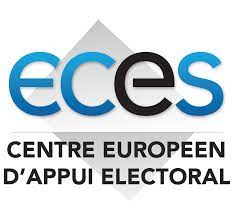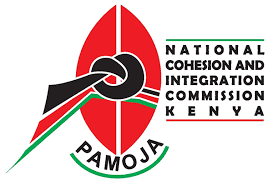
ECES is an independent, non-partisan and not for profit Foundation headquartered in Brussels with a global remit. ECES was established at the end of 2010 and has implemented activities already in more than 50 countries, mainly, but not only, in Africa and the Middle East, primarily with funding from the EU and EU Member states. ECES promotes electoral and democratic strengthening through the provision of advisory services, operational support and management of large projects mainstreaming capacity and leadership development via peer exchanges and comparative experiences, dialogue and the prevention and mitigation of electoral conflicts. ECES has obtained the TRACE certification for its financial management transparency and the ISO 9001 certification for its Quality Management System. ECES has crafted and copyrighted its strategy called "A European Response to Electoral Cycle Support - EURECS", which is implemented via specific methodologies and tools also copyrighted by ECES.
EURECS is an innovative delivery mechanism to implement electoral and democracy assistance activities that are consistent primarily with European values and EU policies targeting the facilitation of the cooperation on electoral matters between the EU, the EU member states and their partner countries. ECES together with the College of Europe, Interpeace, Mediateur, Foundation Hirondelle and the Institute of Research and Education on Negotiation (ESSEC) is implementing on behalf of the EU the ERMES project, the European Resource for Mediation Support. ECES is providing the key expertise and the office for the project that is a strategic tool for the EU role in mediation and dialogue. In this context, ECES is also a member of the European Peacebuilding Liaison Office network, the biggest and leading civil society European platform of 40 independent organisations and think tanks from 16 European countries committed to peacebuilding and the prevention of conflict.

The National Cohesion and Integration Commission (NCIC) is a statutory body established under the National Cohesion and Integration Act No.12 of 2008. The establishment of NCIC recognized the need for a national institution to promote national identity and values, mitigate ethno-political competition and ethnically motivated violence, eliminate discrimination on an ethnic, racial and religious basis and promote national reconciliation and healing. The vision of NCIC Is to create “A just and equitable society living in peace, unity and dignity”. The mission of the organization is to promote national unity, equity and the elimination of all forms of ethnic discrimination by facilitating equality of opportunities, peaceful resolution of conflicts and respect for diversity among Kenyan communities.
The National Cohesion and Integration Commission has 5 main core values:
- Professionalism: Objectivity in addressing issues of ethnic discrimination Integrity;
- Integrity: Accountability and transparency;
- Affirmative action for the marginalized and the minorities: The Commission appreciates groups that are vulnerable and are faced by more challenges, and affirms to generate policies and strategies that enhance their dignity and humanity towards equal opportunities;
- Inclusivity: the Commission commits to treat people from all walks of life resident in Kenya with fairness by according them equal opportunities;
- Respect for Diversity: the commission makes the commitment to recognize, respect and appreciate the uniqueness of individuals as well as communities while undertaking to deliver what is espoused in its mandate.
The Commission is composed of both the Commissioners and the Secretariat. NCIC Commissioners include the Chairperson and six (6) Commissioners appointed by National Assembly. The Secretariat is composed of the Commission Secretary/Chief Executive Officer, and other members of staff who serve in two broad directorates namely, Programmes and Technical Services and Finance and Administration.

